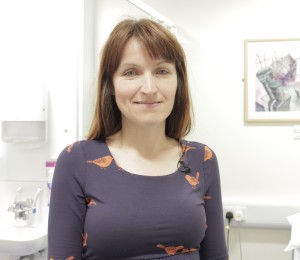 How do doctors manage conversations with patients about the availability (or often non-availability) of certain drugs or treatments within the NHS? In most consultations, the patient’s questions around their illness and treatment can usually be answered by drawing on a combination of medical training, formal guidelines, and clinical experience. However, few doctors will have received any training in health economics, and many junior doctors may be facing these questions for the first time and with no previous experience to reflect on.
How do doctors manage conversations with patients about the availability (or often non-availability) of certain drugs or treatments within the NHS? In most consultations, the patient’s questions around their illness and treatment can usually be answered by drawing on a combination of medical training, formal guidelines, and clinical experience. However, few doctors will have received any training in health economics, and many junior doctors may be facing these questions for the first time and with no previous experience to reflect on.
Five years ago I responded to a request from our medical school at the University of Sheffield to provide some teaching for a programme that would address topics outside of the conventional medical curriculum. I submitted a proposal for a course about how health economics is used to make decisions about which drugs and treatments will be available for patients on the NHS. I was surprised to find that the 12 spaces on the course filled up almost instantly, with a waiting list. I hadn’t expected there to be huge interest in this topic and I was surprised that it was so popular.
The sessions were based around group discussions rather than “chalk and talk” lectures, and what came across strongly was that the students clearly wanted to get a decent understanding of the topic and could see how it would benefit them in the future as working doctors. However, most medical schools do not routinely cover this subject in the curriculum, and most medical students will graduate with little understanding of how the National Institute for Health and Care Excellence (NICE) makes decisions about which drugs will be available for them to prescribe and without having had the chance to develop their own views about this process. Most importantly, they may lack the ability to talk confidently about it with patients.
As doctors, they will be at the frontline when patients arrive in the consulting room having read or heard stories about the latest cancer drug, which has been refused funding by “penny pinching NHS bosses.” When presented with patients whose opinion on the matter has been informed by a potentially very limited view of the complex process that underpins such decisions, few of the students on my course had any idea of how the system worked, how to convey it in lay terms, or what their own feelings were on how such decisions are made. We spent time looking back at the history of decision making in the NHS, the shifts in drug therapy that have necessitated the creation of decision making bodies such as NICE, the drug development process, and the role of the pharmaceutical industry in both developing and supporting access to new treatments.
Given this opportunity to learn, the students quickly developed strong feelings on the topic, as well as a desire to be able to talk to patients about the subject in a way that was ethical and honest. Our medical school has now incorporated more teaching on this subject into the curriculum, ensuring its graduates have the chance to spend at least a little time considering these issues. Our academics also run a free open online learning course on health technology assessment, which gives health professionals a brief introduction to the processes that inform NICE’s decisions.
Given the highly emotive nature of much of the media reporting on drugs that aren’t offered on the NHS and the limited coverage about how such decisions are actually made, it is doctors who are best placed to provide patients with accurate information in the context of their own situation—and without the use of misleading statistics or complex terminology.
The NHS budget is finite. There is not now, nor will there ever be, enough money to provide every therapy, to every patient, regardless of its costs or often limited benefits. When even the Cancer Drugs Fund is having to incorporate information about cost effectiveness into its decisions about which drugs can be funded by the relatively modest resource, and when GPs are increasingly expected to make decisions about the allocation of NHS financial resources, it is time to accept that basic health economics should form part of the core medical curriculum—it is no longer a “niche” topic for those with interest in this aspect of healthcare. By incorporating not just teaching on this topic, but the vital opportunities to debate these issues, UK medical schools can help to give the next generation of doctors the ability to support patients with clear information about the reasons why a certain treatment may or may not be available to them, and to discuss these issues with them confidently and honestly.
You can learn more about the subjects discussed in this blog post on the Health Technology Assessment MOOC—a free online course on the Futurelearn platform. A course started on 15 February and you can register at futurelearn.com/courses/hta
Claire Beecroft is a teacher at the University of Sheffield and currently the acting course director for the MSc in international health technology assessment.
Competing interests: I have read and understood BMJ policy on declaration of interests and declare the following interests: I am the course director of an MSc programme in health technology assessment.
